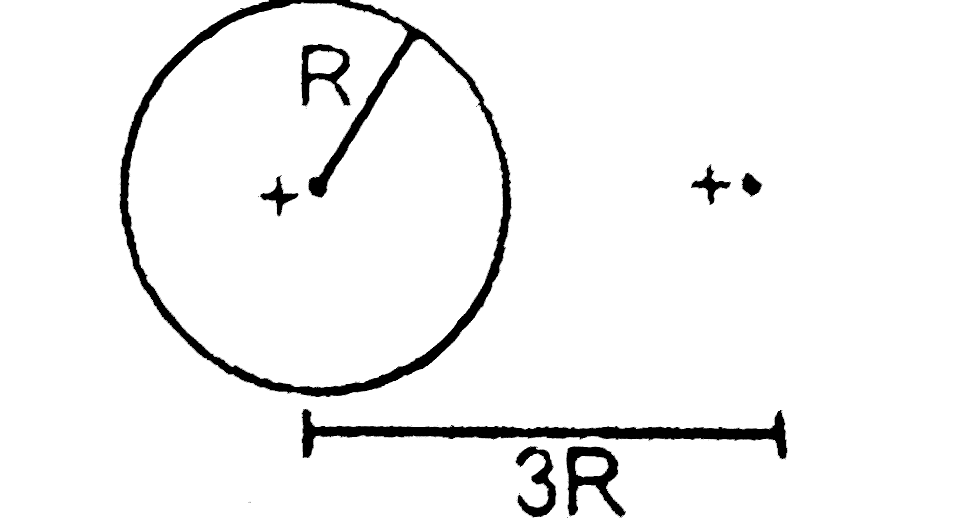[" The flux of the electric "],[" field through a spherical "],[" surface of radius "2m" due "],[" to a charge of "10^(-7)C" kept "],[" at a point "4m" away from "],[" the centre is "]
Step by step video & image solution for [" The flux of the electric "],[" field through a spherical "],[" surface of radius "2m" due "],[" to a charge of "10^(-7)C" kept "],[" at a point "4m" away from "],[" the centre is "] by Physics experts to help you in doubts & scoring excellent marks in Class 12 exams.
Updated on:21/07/2023Similar Questions
Find the flux of electric field through a spherical surface of radius R due to a charge of 10−7C at the centre of another equal at a point 2R away from the centre.
View SolutionFind the flux of the electric field through a spherical surface of radius R due to a charge of 8.85×10−8C at the centre and another equal charge at a point 3R away from the centre (Given : ε0=8.85×10−12 units )

View Solution
Knowledge Check
The flux of electric field due to these charges through the surface S is
 A2qε0B3qε0C−5qε0Dqε0
A2qε0B3qε0C−5qε0Dqε0Electric charges are distributed in a small volume. The flux of the electric field through a spherical surface of radius 20 cm surrounding the total charge is 50 V-m. The flux over a concentric sphere of radius 40 cm will be :
A50 V-mB75 V-mC100 V-mD200 V-mThe electric charges are distributed in a small volume. The flux of the electric field through a spherica surface of radius 10 cm surrounding the total charge is 20V−m. The flux over a concentric sphere of radius 20 cm will be
A20 VmB10 VmC40 VmD5 Vm
Electric charges are distributed in a small volume.The flux of the electric field through a spherical surface of radius 1m surrounding the total charge is 100V−m.The flux over the concentric sphere of radius 2m will be:
View SolutionElectric charge are distributed in a small vouume. The flux of the electric field through a spherical surface of rasius 10cm surrounding the total charge is 25 V m. The flux over a concentric sphere of radius 20 cm will be
View SolutionA hollow spherical conductor of radius "1m" has a charge of 250μC then electric intensity at a point distance of "0.5m" from the centre of the spherical conductor is
View SolutionThe electric charges are distributed in a small volume. The flux of the electric field through a surface of radius 10 cm surrounding the total charge is 20 Vm. The flux over a concentric sphere of radius 20 cm will be
View SolutionGiven below are two statements :
Statement I : An electric dipole is placed at the centre of a hollow sphere. The flux of electric field through the sphere is zero but the electric field is not zero anywhere in the sphere.
Statement II : If R is the radius of a solid metallic sphere and Q be the total charge on it. The electric field at any point on the spherical surface of radius r(<R) is zero but the electric flux passing through this closed spherical surface of radius r is not zero.
In the light of the above statements, choose the correct answer from the options given below :
View Solution
